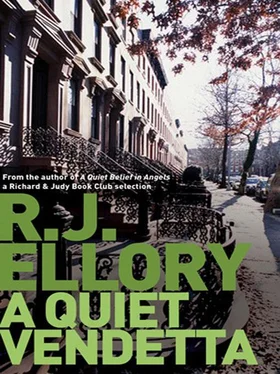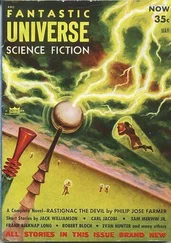‘I am fourteen years old… old enough to know what I want, Father, and what I want is to go to America. No, we will not talk about it any more tonight. But we will talk about it again, and we will keep on talking about it until you are prepared to see things from my point of view. Then you will make a decision, and if the decision is that you will not take me then I will find a way to go by myself.’
He pushed his chair back with his knees, the sound like something ugly dragging itself across the ceramic tile, and then he turned and walked to the door.
He looked back as he stood in the doorway. ‘Goodnight, Father,’ he said, his voice curt and brusque. ‘I will see you in the morning.’
I listened as he made his way up the stairs to his room, as he slammed his door shut behind him, and I leaned forward, my arms folded on the table, and I rested my forehead on my hands.
I imagined Victor finding his way to America alone. I imagined him reaching New York and wandering the streets alone. I imagined what might happen to him, who he might meet and what would become of him.
I felt tears in my eyes, a knot of twisted emotion in my throat, and I believed for a second that if he went he would become what I had become. Either that, or he would die.
I did not sleep that night, and when I heard him rise in the morning, as I listened to him prepare his own breakfast in the kitchen below me, I could not face the prospect of seeing him look so defiantly at me again.
I waited until Claudia arrived and his lessons began, and then I rose and showered. I dressed quickly and quietly, and left the house by the rear door and made my way to the store.
Victor did not so much withdraw from me as quietly disappear. I saw less and less of him, and this, I believed, was how he intended it to be. In the morning he would say little. He would prepare his own food and retreat to his room until Claudia arrived. Then he would join her in the main room and close the door firmly behind him. Though it was not locked it was obvious that he did not wish me to enter, and so I did not. I believed perhaps that I was allowing him some degree of control over his life, but all I was doing was allowing him to draw himself further away from me. In the evening when I returned from the store he would be upstairs in his room. I learned very quickly that he would arrange for the evening meal to be prepared before I came home, and he would eat with Claudia. This again was of his own devising, and it was evident in his manner and attitude that he no longer considered me a part of his life. I had refused him something that he longed for, and thus I had been summarily excommunicated.
On many occasions, too many to recall, I attempted to win him back, but he was stubborn, and as we entered October of 1996 I realized that he had chosen a path, much as I had done. Perhaps I consoled myself with the knowledge that where I had killed a man to gain my knowledge of the world, all my own son wished to do was visit America, the land of his birth, the home of his mother.
On the last Saturday of that month, a day that would mark the beginning of the end in so many ways, I went up to my son’s room and sat on the edge of the bed. He did not look at me, he merely turned onto his side and went on reading his book.
‘Victor, listen to me,’ I said calmly.
He did not respond.
‘Victor, listen to me now. I am going to say something and you are going to listen.’
Again he did not move or turn his head towards me.
‘You want to go to America?’
There was a flicker of movement in his face.
‘If you want to speak to me of going to America then you will turn and face me and talk to me like a man.’
Victor moved sideways. He turned to look at me, his eyes almost without expression.
‘We will go to America,’ I said quietly. ‘We will do as you wish and we will go to America, but you must understand something.’
Victor sat up. He started to reach towards me. I raised my hand and edged backwards. ‘Listen to me, Victor, and listen well. I will take you to America, but you must understand that I had a life there before you were born, and there were things done and things said that I believe you could never comprehend. If you happen to hear of these things then you should come and talk to me before you assume they are true, and before you make any judgement of me. I am your father. I am the closest person you have in this world, and I love you more than life itself. But I will not have you judge me, Victor. I will not have you judge me.’
The fear was there, buried deep inside me, almost an integral part of my being. The fear of who I was, the fear of my son discovering the truth about his father. It was there, always had been, but I had been too afraid to face it.
Victor leaned forward and put his arms around my neck. He pulled me tight and hugged me. I inhaled slowly. I closed my eyes. I held him for some small eternity and I would not let go.
I did not want my son to see that I was crying.
The following day I made some calls to Chicago. I discovered that Don Calligaris, Ten Cent, some of the others, had moved back to New York in the summer of 1994. I found Ten Cent without difficulty, and when I told him I was planning on returning to New York he told me that he could arrange a private charter out of Havana that would bring me to the mainland of Florida, and there I could take a train or drive up to New York. There would be no need for papers or identification. There would be no need for anyone but the Alcatraz Swimming Team to know that Ernesto Cabrera Perez was coming to America once more.
Five and a half years I had been away. My son, all of eight years old when we had left, was now a teenager with a mind and a character and a vision all his own. New York would be filled with painful memories, and I knew the time would come when I would walk those same streets where I had walked with Angelina Maria Tiacoli so many years before.
But that was a different life. That was a different man altogether, and I swore to myself that this time, this time it would be different.
I could not have been more wrong, but as I boarded that small aircraft, as we taxied along the narrow runway and then watched through the windows as the ground was swallowed into obscurity beneath us, I imagined that I could return and still stay somehow disconnected from the past.
Truth be known the past had been there all along, and it was just waiting for me to come home.
Hartmann was not sure. Perhaps still stunned by the events of the previous night, perhaps frustrated at the fact that much of their evidence was now destroyed, and beneath that the feeling that whatever investigation might have been ongoing was bearing no fruit, it seemed that any sense of accomplishment or forward progress had been obliterated in one swift and effective act.
There was no way, at this early stage, to determine anything regarding the bombing of the Field Office, save that it had been done by someone who was aware of Perez’s existence, someone who wanted Perez to disappear and did not care who might disappear with him. Hartmann himself suspected Feraud. The man had the authority, the wherewithal, and the people to carry out such an attack, and Hartmann also believed that Feraud would have seen the deaths of innocent bystanders and federal agents alike as merely casualties of war, even as some sort of bonus. And then there was Ducane – Charles Ducane, the governor of Louisiana. And if Perez’s word was anything to go by, this man had been working hand-in-glove with organized crime for at least forty years. Ducane was now in his sixties, perhaps the same age as Perez himself, but had worked officially on the other side of the law, the acceptable side where everything as it actually was and everything as it appeared to be were very different. At least with people like Perez the world was black and white. What they did was straightforward: murder, extortion, blackmail, violence, drug-running, arms-dealing, pornography, prostitution, racketeering. In politics it was called public relations, fundraising, political leverage, lobbying, strengthening the vote and ‘exercising one’s peccadillos’. They were all the same thing, and Hartmann was not so naïve as to believe that people like Ducane were incapable of exactly the same things as Perez and his Alcatraz Swimming Team. It was not a difference of action, more a question of terminology.
Читать дальше







![Quiet Billie - Don't mistake the enemy [СИ]](/books/421973/quiet-billie-don-t-mistake-the-enemy-si-thumb.webp)




